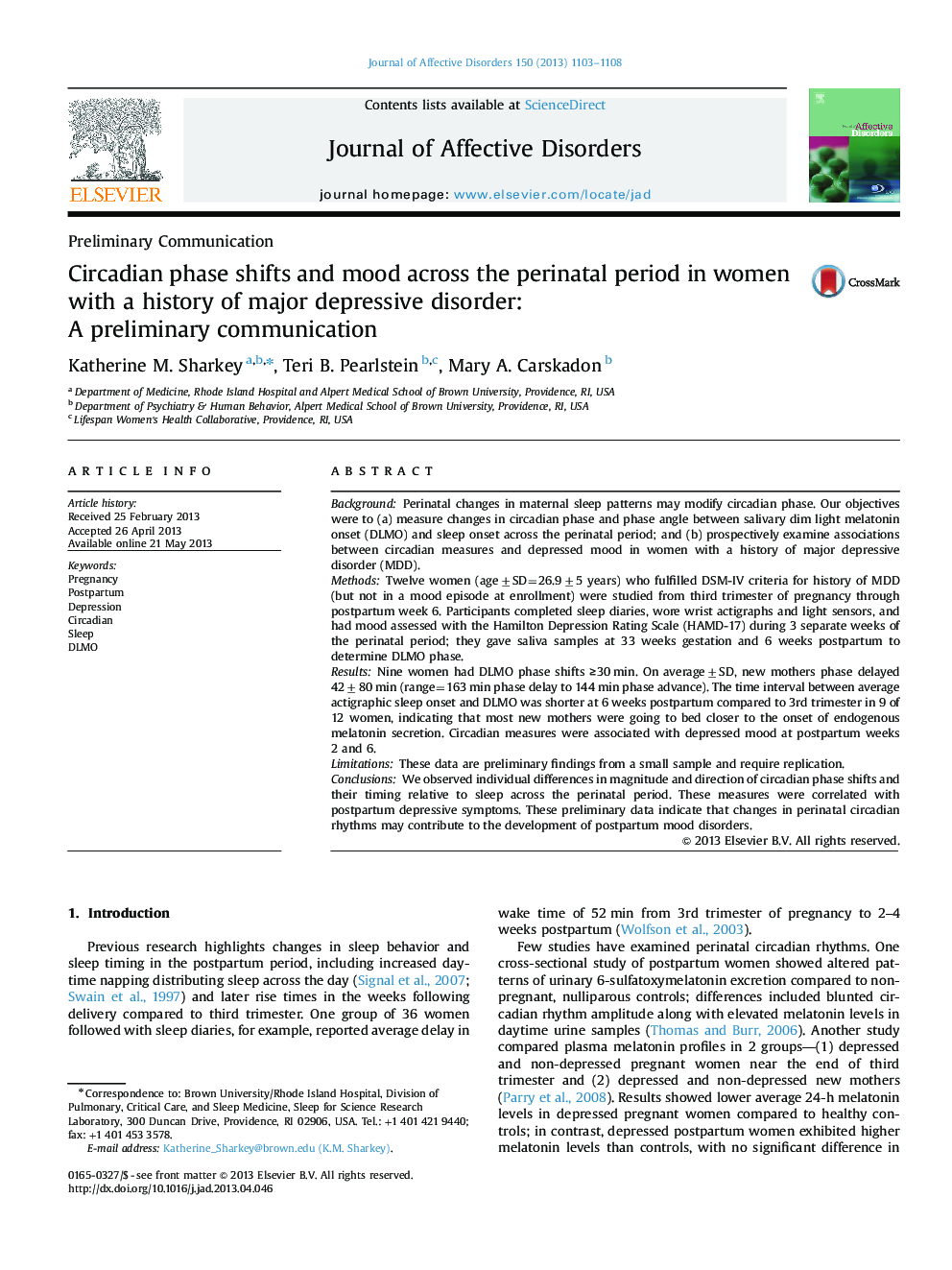| کد مقاله | کد نشریه | سال انتشار | مقاله انگلیسی | نسخه تمام متن |
|---|---|---|---|---|
| 6233708 | 1608172 | 2013 | 6 صفحه PDF | دانلود رایگان |
BackgroundPerinatal changes in maternal sleep patterns may modify circadian phase. Our objectives were to (a) measure changes in circadian phase and phase angle between salivary dim light melatonin onset (DLMO) and sleep onset across the perinatal period; and (b) prospectively examine associations between circadian measures and depressed mood in women with a history of major depressive disorder (MDD).MethodsTwelve women (age±SD=26.9±5 years) who fulfilled DSM-IV criteria for history of MDD (but not in a mood episode at enrollment) were studied from third trimester of pregnancy through postpartum week 6. Participants completed sleep diaries, wore wrist actigraphs and light sensors, and had mood assessed with the Hamilton Depression Rating Scale (HAMD-17) during 3 separate weeks of the perinatal period; they gave saliva samples at 33 weeks gestation and 6 weeks postpartum to determine DLMO phase.ResultsNine women had DLMO phase shifts â¥30 min. On average±SD, new mothers phase delayed 42±80 min (range=163 min phase delay to 144 min phase advance). The time interval between average actigraphic sleep onset and DLMO was shorter at 6 weeks postpartum compared to 3rd trimester in 9 of 12 women, indicating that most new mothers were going to bed closer to the onset of endogenous melatonin secretion. Circadian measures were associated with depressed mood at postpartum weeks 2 and 6.LimitationsThese data are preliminary findings from a small sample and require replication.ConclusionsWe observed individual differences in magnitude and direction of circadian phase shifts and their timing relative to sleep across the perinatal period. These measures were correlated with postpartum depressive symptoms. These preliminary data indicate that changes in perinatal circadian rhythms may contribute to the development of postpartum mood disorders.
Journal: Journal of Affective Disorders - Volume 150, Issue 3, 25 September 2013, Pages 1103-1108
